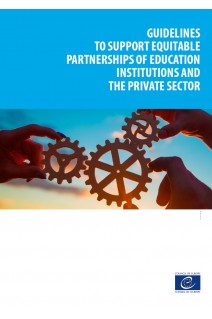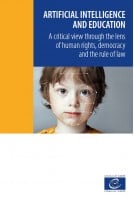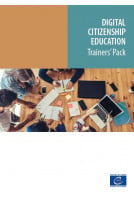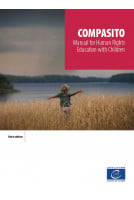Education and the digital world are now inextricably linked, whether in the home, at school or in other settings, where digital tools and technologies are used to support learning. Education institutions increasingly rely on and need to work closely with the private sector to support this new learning environment. Business enterprises provide cutting-edge learning technologies and a host of associated digital services and learning resources. Partnerships between education institutions and the private sector potentially have the leverage to open a world of new opportunities for enhancing learning possibilities for all.
The aim of these guidelines is to foster better understanding of digital citizenship education and the role that partnerships can play in enhancing outcomes for learners.
The guidelines are intended to be a resource to support successful partnership building and to provide a framework for embedding digital citizenship education at the heart of the relationship between education and the private sector.
1. INTRODUCTION 2. THE ROLE OF THE PRIVATE SECTOR IN PROMOTING DIGITAL CITIZENSHIP
2.1. How companies can support education
2.2. A partnership-based approach
3. EDUCATION, DIGITAL CITIZENSHIP AND THE 10 DIGITAL DOMAINS 4. HOW TO USE THESE GUIDELINES 5. GUIDELINES TO SUPPORT EQUITABLE PARTNERSHIPS OF EDUCATION INSTITUTIONS AND THE PRIVATE SECTOR
5.1. Being online – Access and inclusion
5.2. Being online – Learning and creativity
5.3. Being online – Media and information literacy
5.4. Well-being online – Ethics and empathy
5.5. Well-being online – Health and well-being
5.6. Well-being online – E-presence and communications
5.7. Rights online – Active participation
5.8. Rights online – Rights and responsibilities
5.9. Rights online – Privacy and security
5.10. Rights online – Consumer awareness
APPENDIX 1 – A SAMPLE SELF-ASSESSMENT CHECKLIST FOR EDUCATION INSTITUTIONS AND PRIVATE SECTOR COMPANIES APPENDIX 2 – REFERENCES AND RESOURCES
Council of Europe resources
Other online resources







